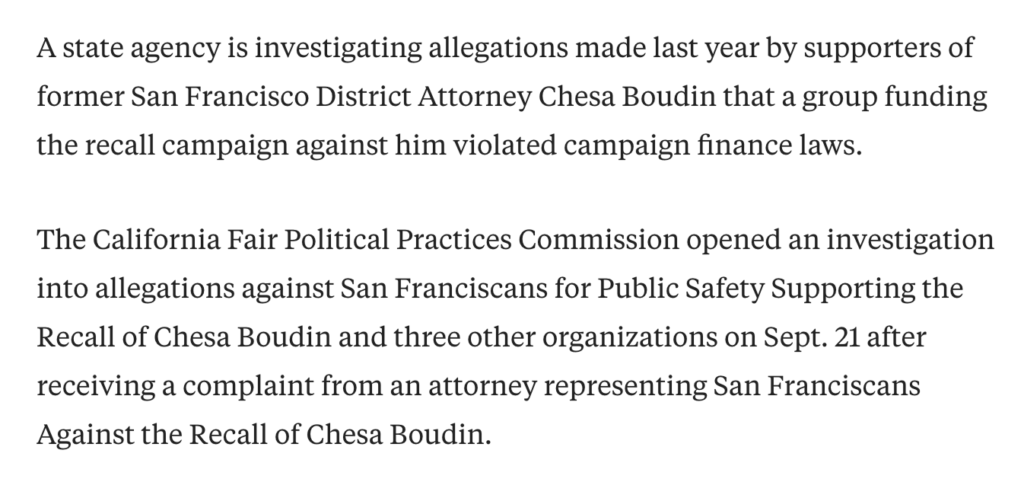Voters’ ability to recall an elected official in California is the result of Progressive Era democratic reforms intended to reduce corruption, enacted alongside the introduction of the ballot initiative and women’s suffrage in 1911. Following a petition drive collecting signatures amounting to at least 12 percent of voters in the previous election for the political office in question, a special election is held.
Did the Progressives who wrote the rules for recalls in California over a century ago face the same lack of partisanship as we do today? I am at least dubious that our ability to influence campaigns (particularly smaller ones) through micro-targeted media spending had anything comparable then.
The need for reform was never clearer last year, when, under current recall law, 7% of the state’s eligible voters could have ousted the current democratically-elected governor (elected 3 years prior by 7.7 million people and 62% of the general election’s voters). Even less than 7% can overturn local election results.
Even worse at the local level: the city executive appoints their replacements; not even a fraction of voters decide. In fact, just a few years ago, SF voters decided that maybe it was an unfair advantage for a non-elected mayoral appointee to leverage her new platform and name recognition in a general election. Ironically (given who appointed her), that attempted soft-circumvention of the normal process is precisely what got us Chesa Boudin.
Now, a group of moneyed folks* in SF have tasted the economically efficient elixir of pushing their agenda through single-issue standalone elections that involve far fewer voters than general elections. And if representation matters less to you than your personal priorities (or the theories of Milton Friedman), well….it’s certainly laudable they’re being cash-efficient and focusing like that!
In fact, it’s unclear why these folks won’t eventually just disengage from the general elections altogether, and instead, just selectively jump in later when things don’t happen to go their way in the general. Their buck goes further in these smaller, follow up recalls, where they can get signatures from just a small sub-section of voters. It also lets them economize on their search and social media buys.
Plus, I have to think that the competitive business mindset just sort of delights in the strategy of staging a self-funded election hack that is still legal 100 years later in a totally different environment. That’s probably why they might object strongly to modern reforms intended to put this increasingly exploited vehicle in check. I mean, they were called “Progressives” back in the day right? That might be a cool social media campaign, even…
* Caveat: it’s theoretically possible that these folks aren’t doing very well working in professional roles at places like Stripe, Google, Lyft and Twitter; we do know that they certainly know how to do ad buys!
August 12, 2022 Update:

